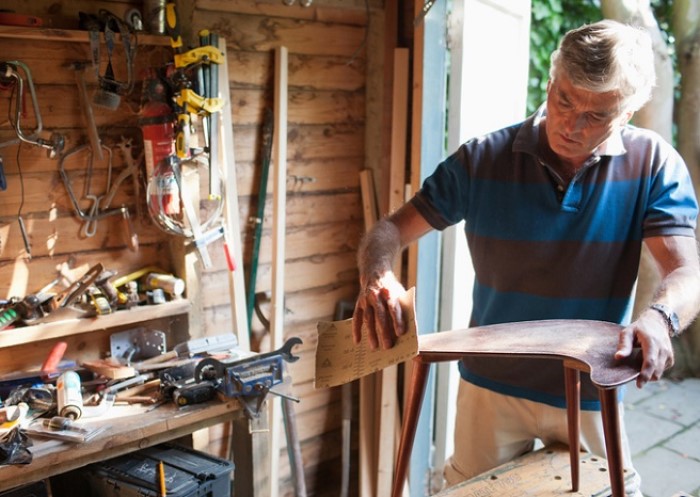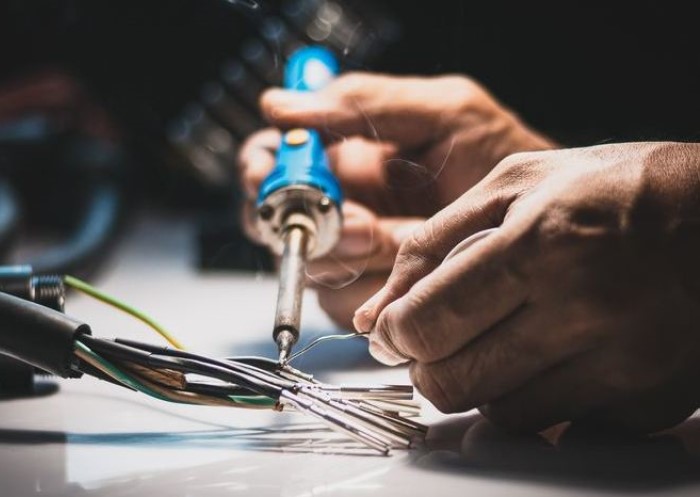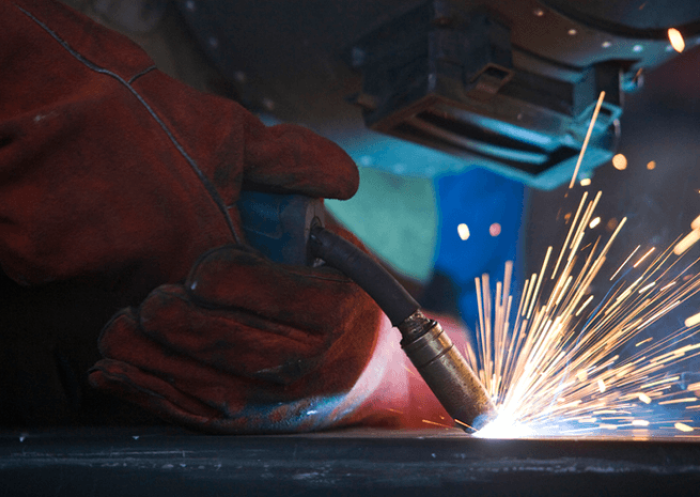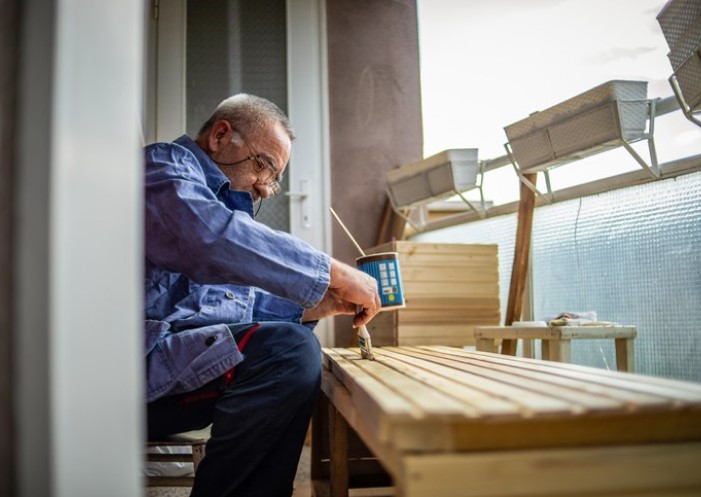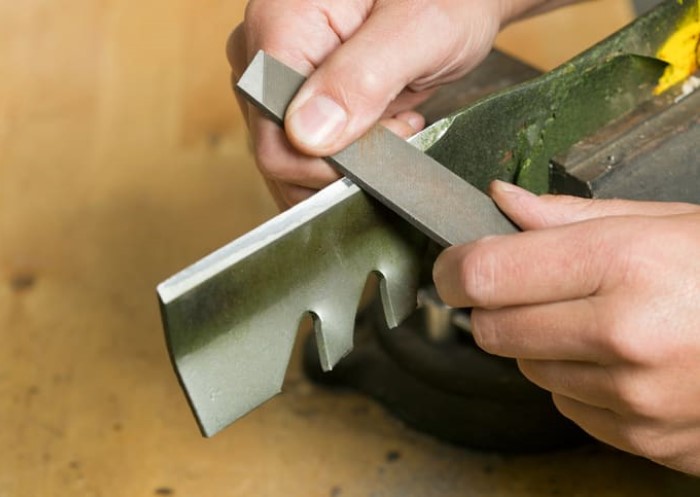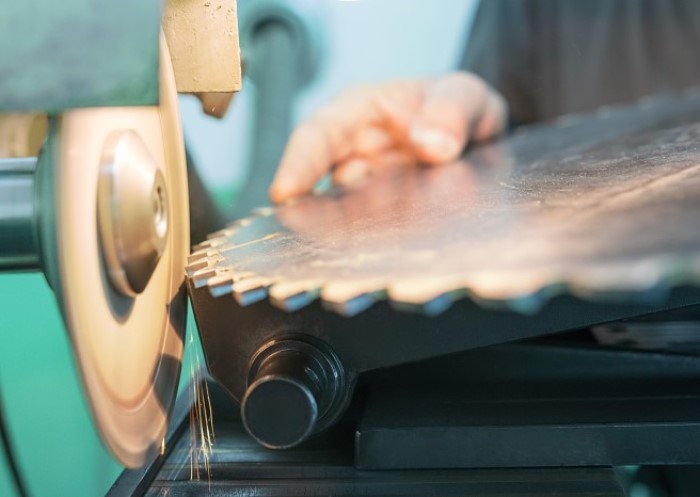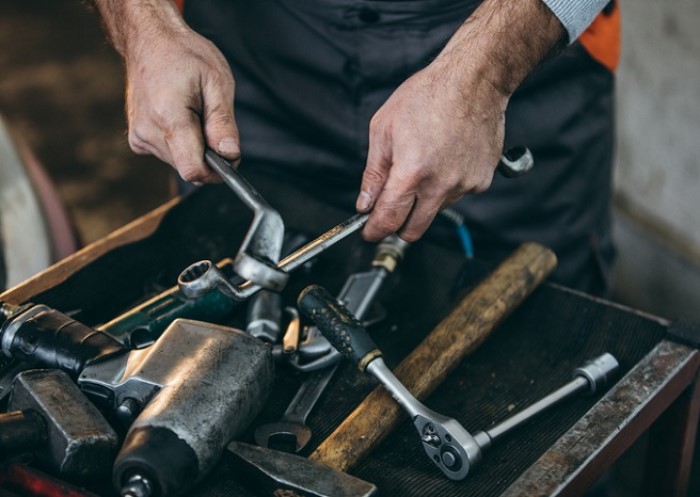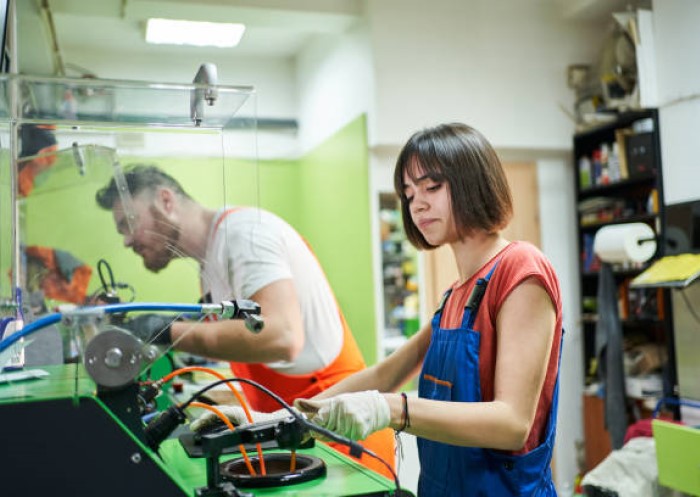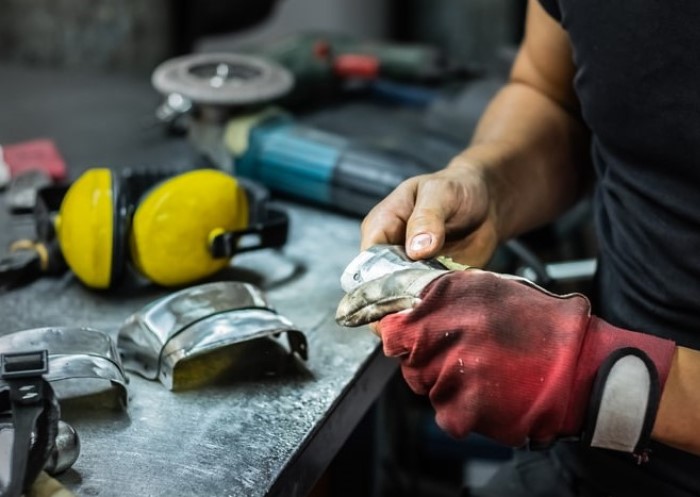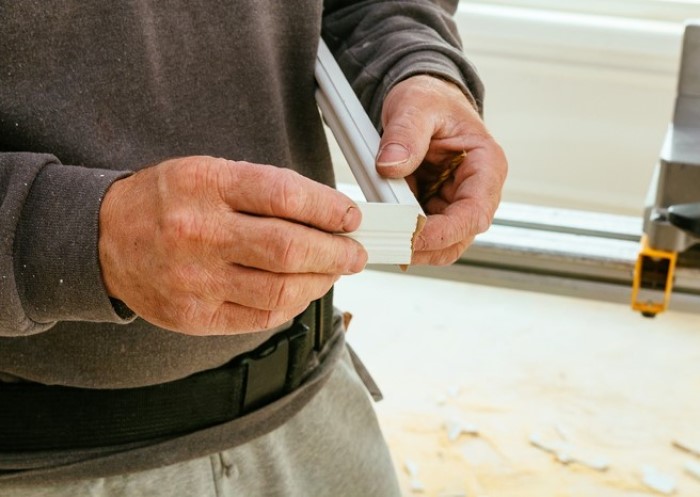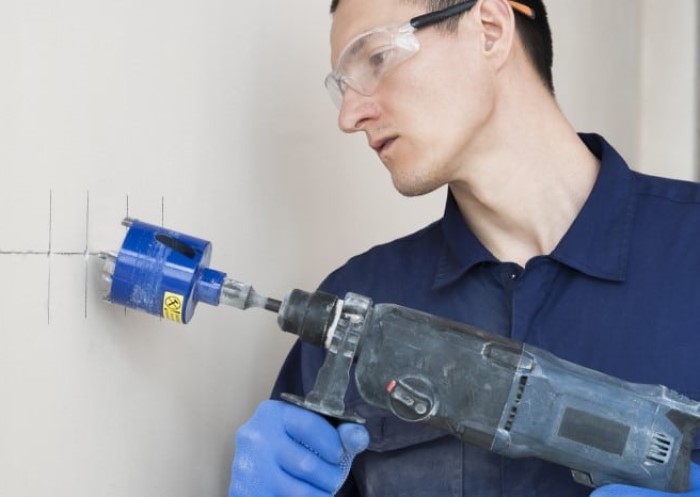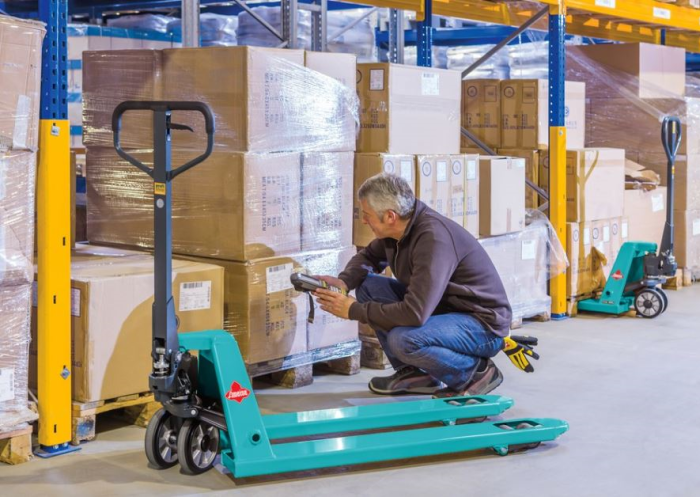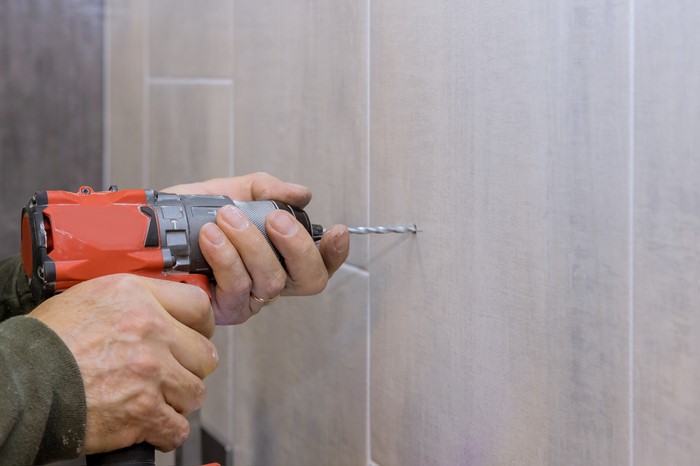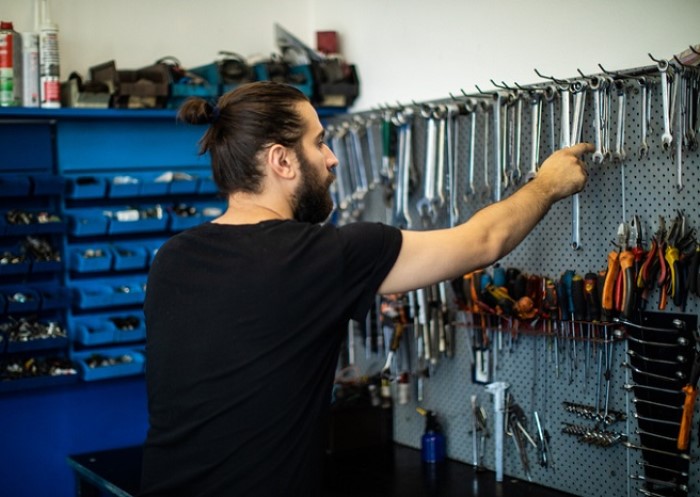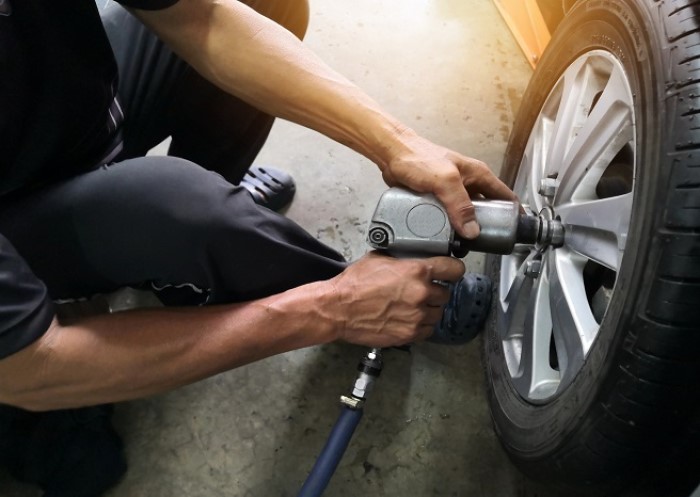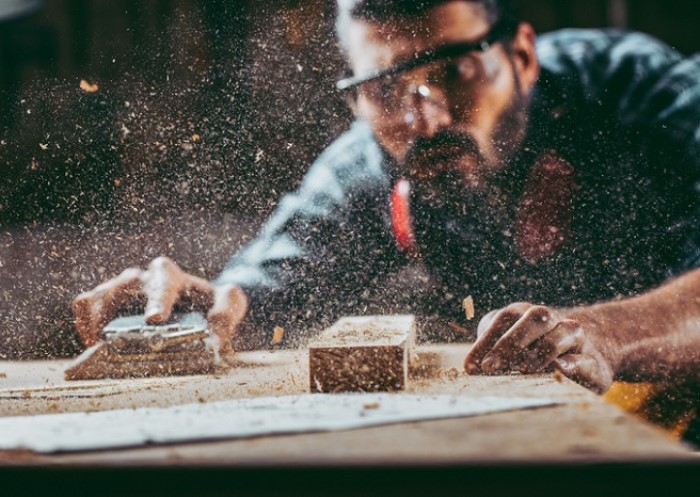Table of contents
Not only professional craftsmen, but also do-it-yourselfers need a selection of basic tools to carry out the most common jobs. High-quality tools will serve hobby craftsmen well in the long term and make work more enjoyable. To make it a bit easier for you, we will help you know which items to include in a do-it-yourself tool kit.
The most important tools for DIY enthusiasts can be roughly divided into two categories: hand tools and power tools. As the names suggest, you don’t need electricity for mechanical hand tools, while power tools require a power source or a charged battery. To acquire an appropriate collection of basic DIY tools, follow these steps:
- Create an overview in which you list the DIY jobs you have coming up in the near future.
- Make a note of which tools are needed for the job, based on the activities. Some tools can also be used for several different jobs, making them a wise investment.
- Also think about accessories and small items such as lubricants and detergents to keep your DIY tools clean and properly maintained.
Usually, this approach will result in a set of DIY tools that will allow you to do most jobs that come up in the future.
Tools for do-it-yourselfers – Basic equipment for the hobby workshop
Depending on whether you regularly tinker with various DIY projects at home or only need tools for repair work, the amount of DIY tools in your workshop can vary. While standard tools are often sufficient for the latter, ambitious hobby craftsmen sometimes need a larger selection. As your passion for craftsmanship grows, so does the basic DIY equipment you need. DIY tools in the following categories will usually form part of your basic kit:
- Files: For the vast majority of repair and handicraft work in the home and garden, sandpaper in various abrasive gauges and a set of key files are sufficient for working on metal as well as wood and plastic. For extensive do-it-yourself projects, electric orbital or belt sanders and workshop files with fine and coarse cut perform best.
- Hammer: No set of basic tools for handymen should be without a sturdy hammer. A locksmith’s hammer is well suited here as a universal tool for hammering in nails of various sizes and thicknesses. A lath hammer with a curved tip for removing nails can also be useful here. DIY enthusiasts complete their hammer equipment with a wooden hammer, rubber mallet, and tile hammer.
- Allen and ring wrenches: Casual do-it-yourselfers are well equipped with a high-quality set of various Allen and ring wrenches. The sets include all common wrench sizes, so they are suitable for assembling furniture or repairing garden and kitchen appliances. Professional do-it-yourselfers often supplement the basic set with wrenches in special sizes.
- Gluing and bonding: A universal adhesive is useful for fixing different materials. DIY enthusiasts make bonding jobs easier with an electric hot glue gun, for which various adhesives are available. For metal work, it may also be worthwhile to purchase a blowtorch.
- Measuring tools: Measuring devices are must have tools for the handyman. Do-it-yourselfers should be well equipped with a folding rule or folding ruler, a tape measure, and a spirit level. If you are an amateur handyman who likes to fiddle around with electrical installations, it may also make sense to purchase a voltage tester.
- Cutting and sawing tools: A high-quality cutter knife including spare blades should not be missing from any do-it-yourself toolbox. For working with wood, you should get a so-called foxtail saw. However, cutting metal requires a small metal saw and including a few spare blades can also be useful addition. A small branch saw or shears can be helpful for rough work in the garden. For hobby craftsmen who regularly saw or cut, it is worthwhile to purchase a small circular saw or jigsaw with electric operation.
- Screwdrivers: Bit screwdriver sets, screwdriver sets, or screwdrivers with interchangeable tips are essential for all the screwdriving work that can occur in the household or in the home workshop. In the sets you will find various attachments with different heads for cross, slotted, and other screw heads. Depending on your needs, such sets can differ in the scope of equipment. For regular screwdriving work in the hobby workshop, a cordless screwdriver can also be useful.
- Pliers: Mechanical helpers, such as pinch and combination pliers, increase power transmission when screwing, separating, or loosening. A solid pair of combination pliers can be quite sufficient as a DIY tool here. Do-it-yourselfers who regularly take care of various repair jobs themselves should also consider purchasing water pump pliers and cable shears with VDE insulation.
How to recognize high-quality DIY equipment
You can recognize high-quality DIY tools by their workmanship: good tools for private use are always sturdily made and cannot be bent or twisted easily using only physical force. This indicates that the tool is made of high-quality tool steel. Above all, the composite parts of a tool should be sturdy and well manufactured. High quality DIY tools also offer special coatings for the components that most frequently come into contact with workpieces. This protects the tools against excessive wear and tear, as well as guarantees precise and safe results over a long period of time.
Well-known tool brand manufacturers can also be a quality criterion. They often have a certain reputation in DIY circles and are committed to high product standards.
Brand manufacturers are also investing in the development of tools for home use. The CE mark for tested safety, the UKCA seal, and other test seals are further indicators of high-quality DIY tools.
Image source:
© gettyimages.de – Tom Merton

